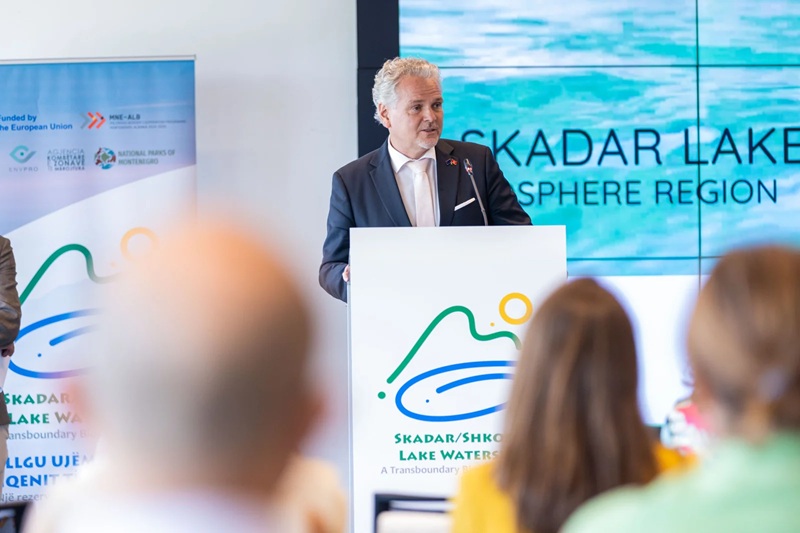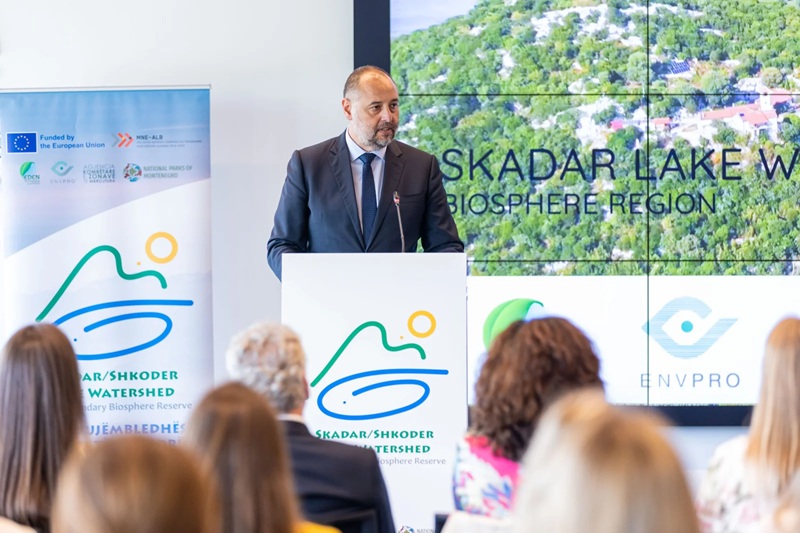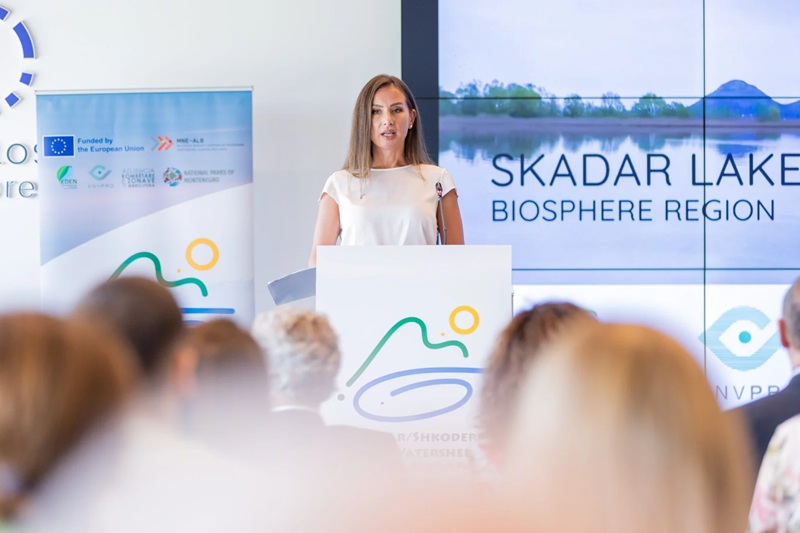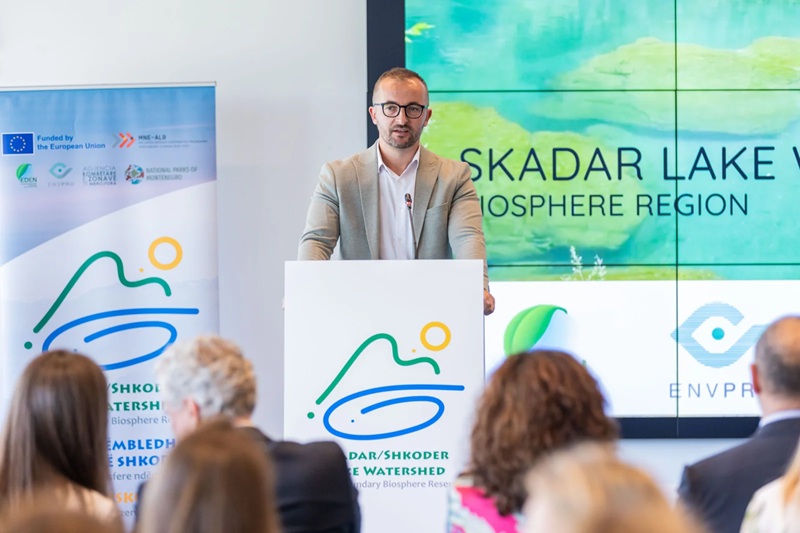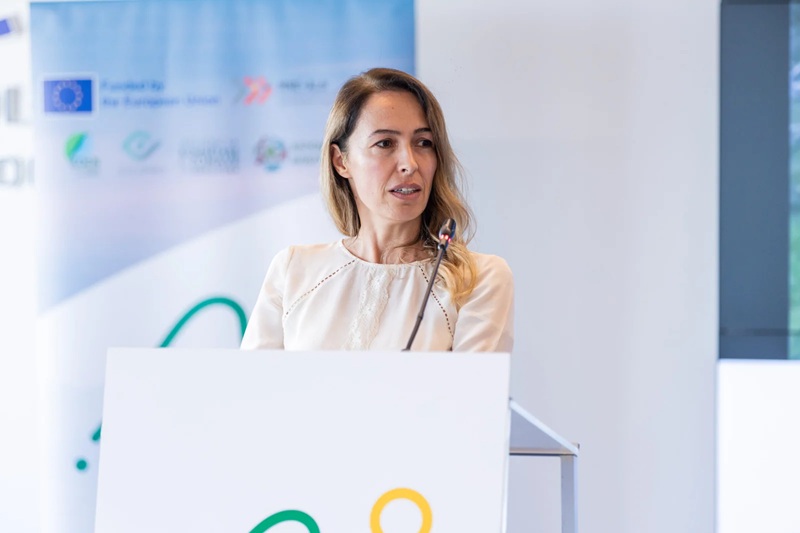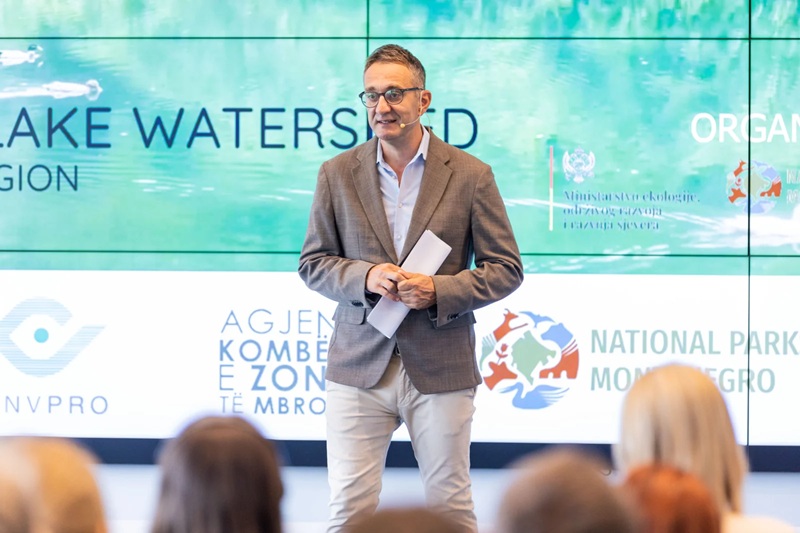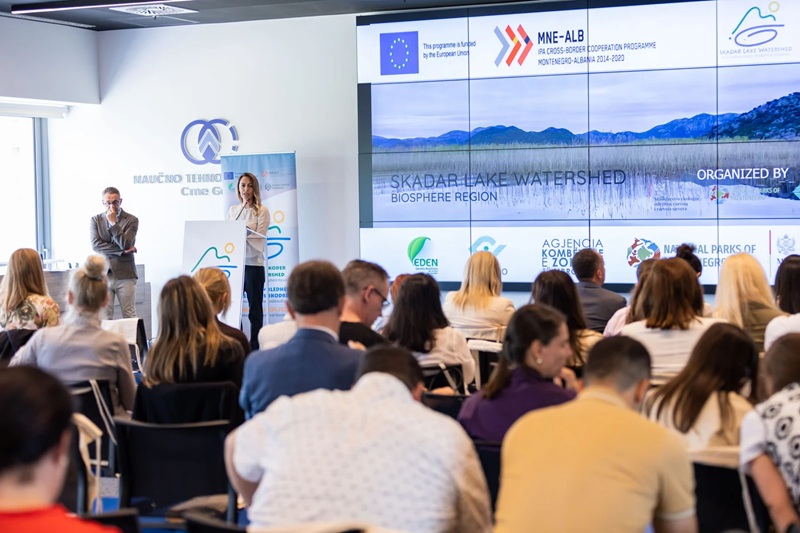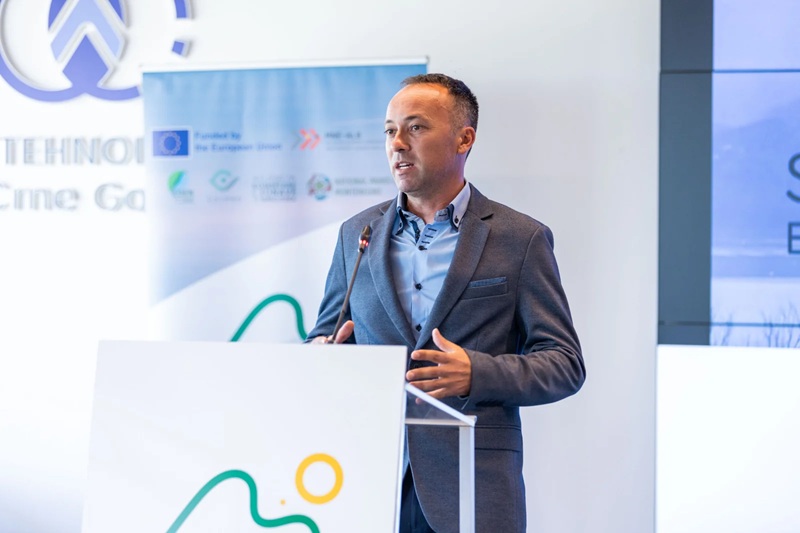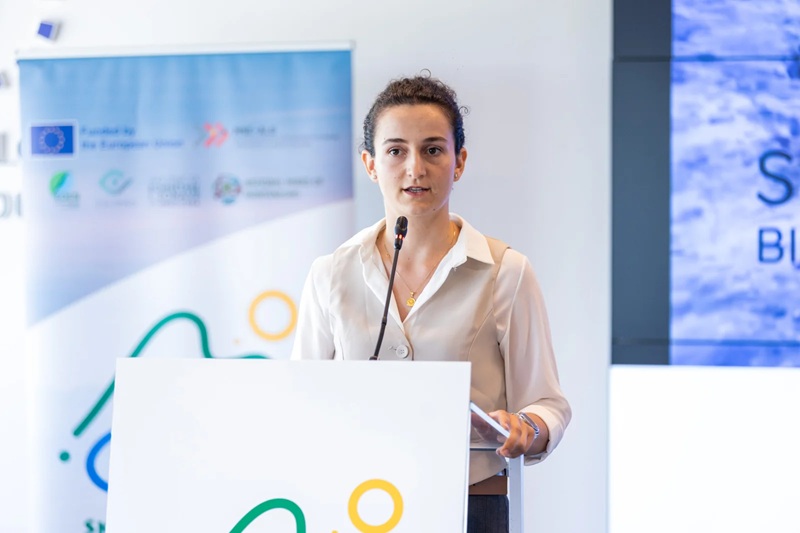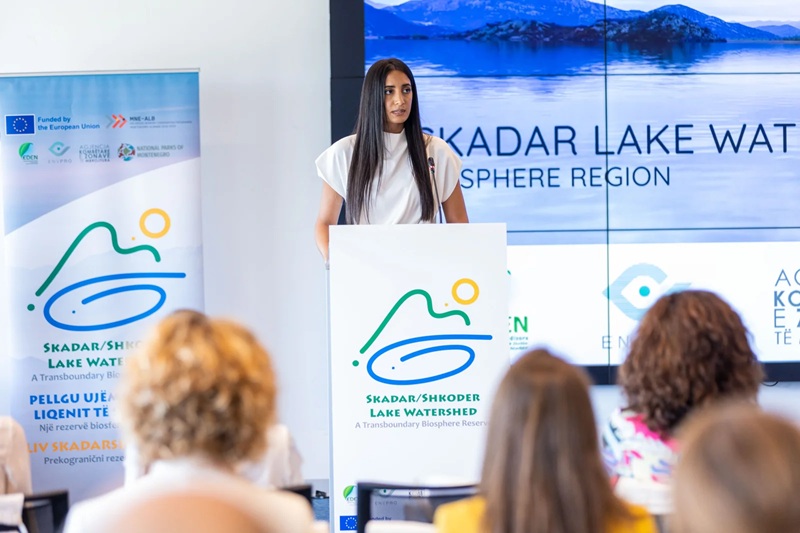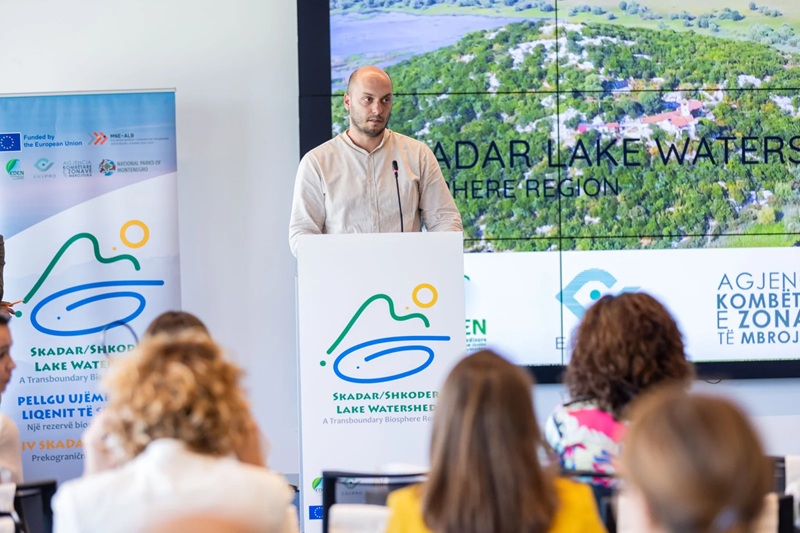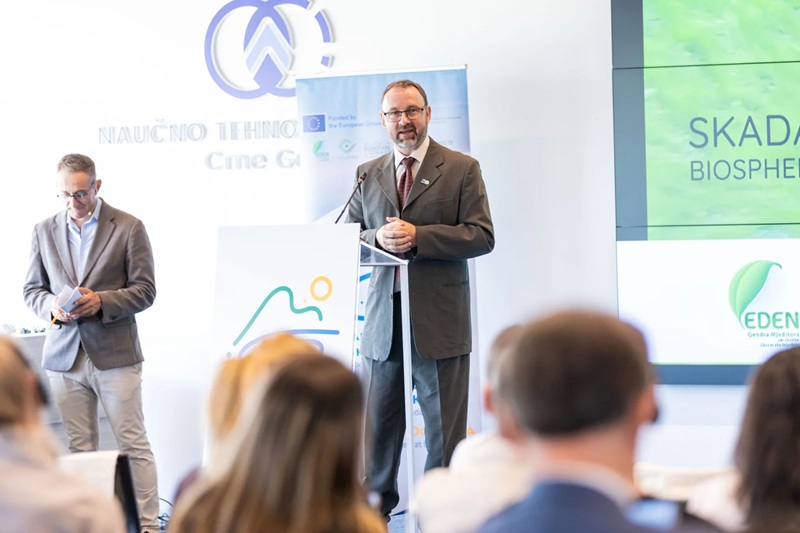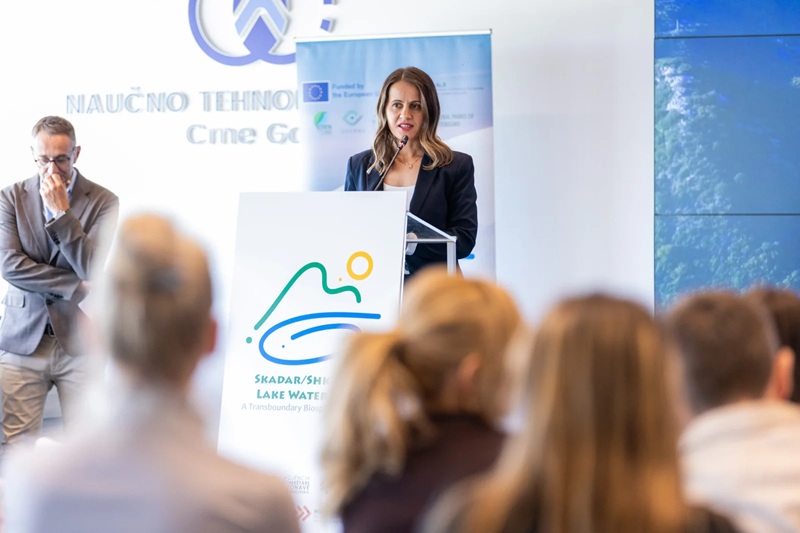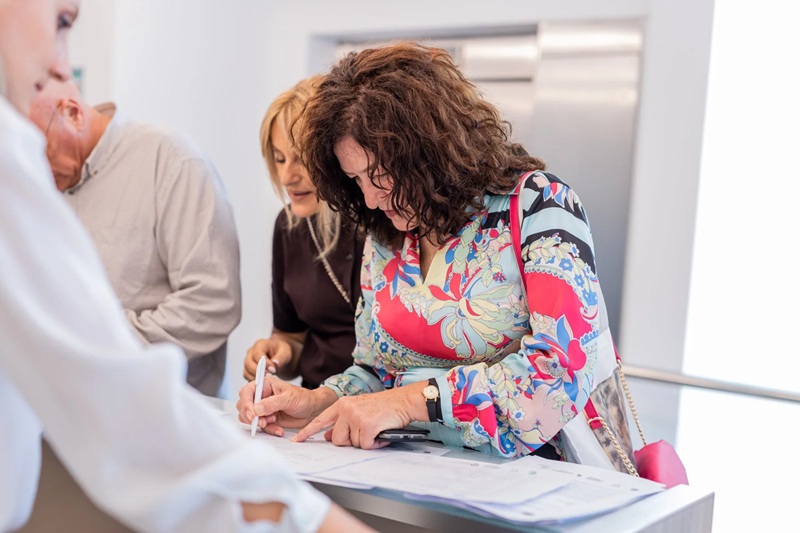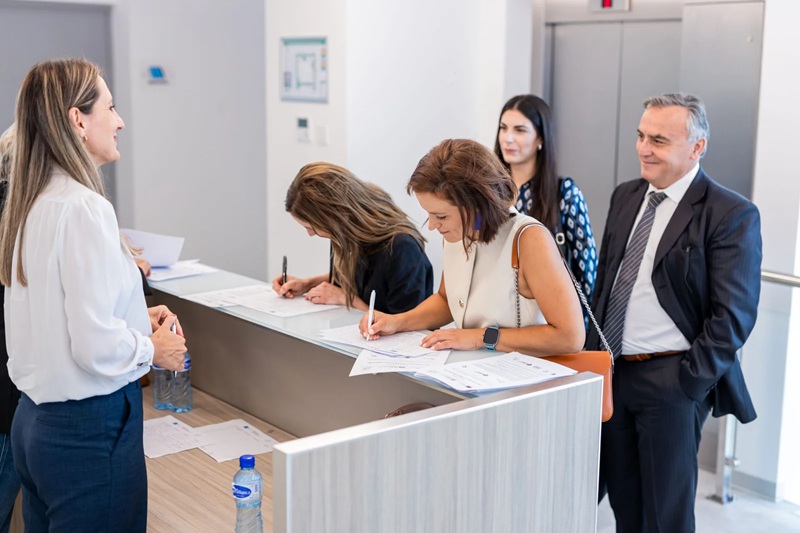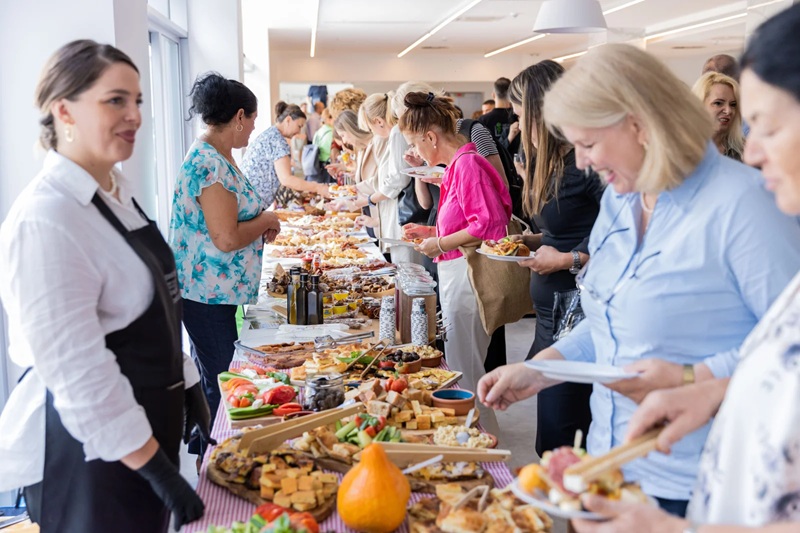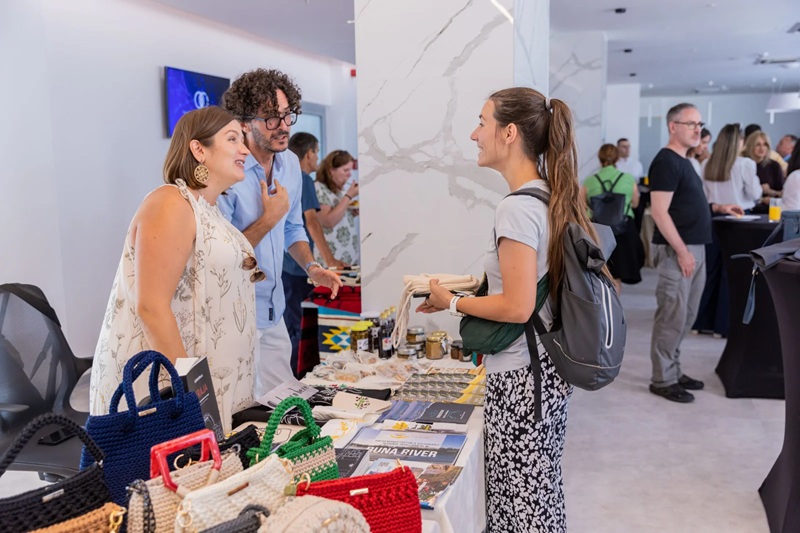- Home
- Announcements
- FINAL CONFERENCE – THE POWER OF COOPERATION FOR THE FUTURE OF THE BIOSPHERE REGION
High-level speakers, including EU Ambassador Johann Sattler and State Secretary Nenad Vitomirović, as well as many local representatives from both countries, reaffirmed their commitment to national and cross-border cooperation and emphasized that this process “shows how nature protection and community development can go hand in hand.”
Support was also expressed by national and local stakeholders from the sectors of culture, nature protection, sustainable development, spatial planning, and foreign affairs.
Three nomination dossiers – one joint and two national – are expected to be officially submitted in September 2025, marking the final step toward international recognition.
However, this process was much more than just preparing a nomination file.
It was a process of connecting people, knowledge, values, and aspirations. A process in which institutions, civil society, businesses, experts, and local actors – each in their own way – contributed to a shared goal: for the Skadar Lake Watershed and its surroundings to be recognized not only for their beauty and diversity but also for their capacity to be developed sustainably, fairly, and inclusively.
The final conference and the Nature and Culture Fair brought together around 100 participants – representatives of institutions, local governments, international organizations, experts, the private sector, and communities from Montenegro and Albania.
These achievements are not the end – but the beginning of a new phase where a shared vision begins to take shape in practice.
- Three nomination dossiers were finalized, the result of work by over 200 representatives across various levels and sectors.
- The functional zones of the biosphere reserve were defined – core, buffer, and transition zones – aligned with existing areas and the legal framework.
- A proposed joint governance model was developed, including a coordination body, advisory and executive structures, involving institutions, the private sector, civil society, and local communities.
- Numerous local and cross-border events, consultations, meetings, and workshops were held.
- Surveys and analyses were conducted, and valuable materials and concepts for future communication and management were developed.
- A solid foundation was laid for future cross-border and national projects and investments in areas such as awareness-raising, communication, education, science, and long-term local and regional development.
We thank everyone who was part of this process for their support, commitment, and shared sense of responsibility.

